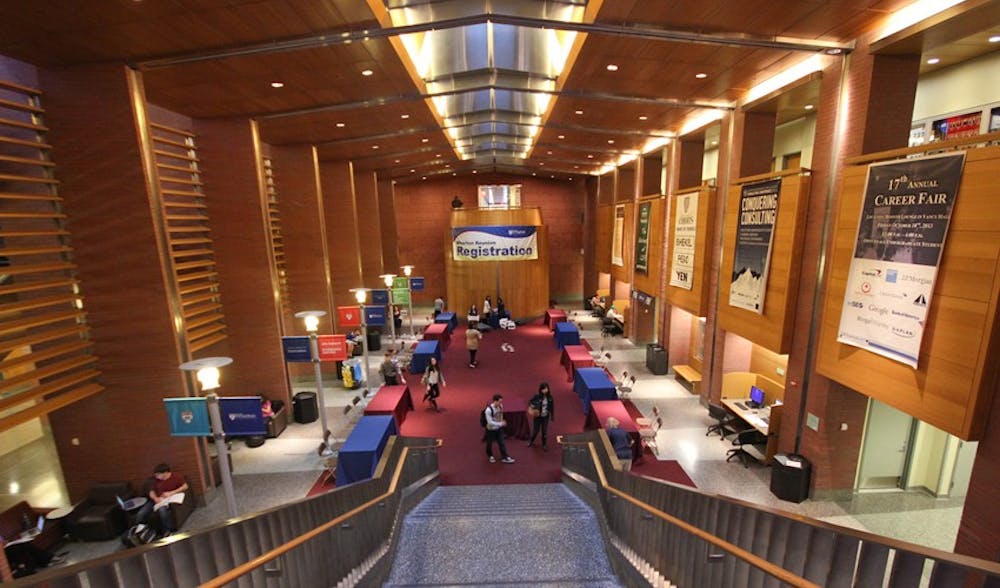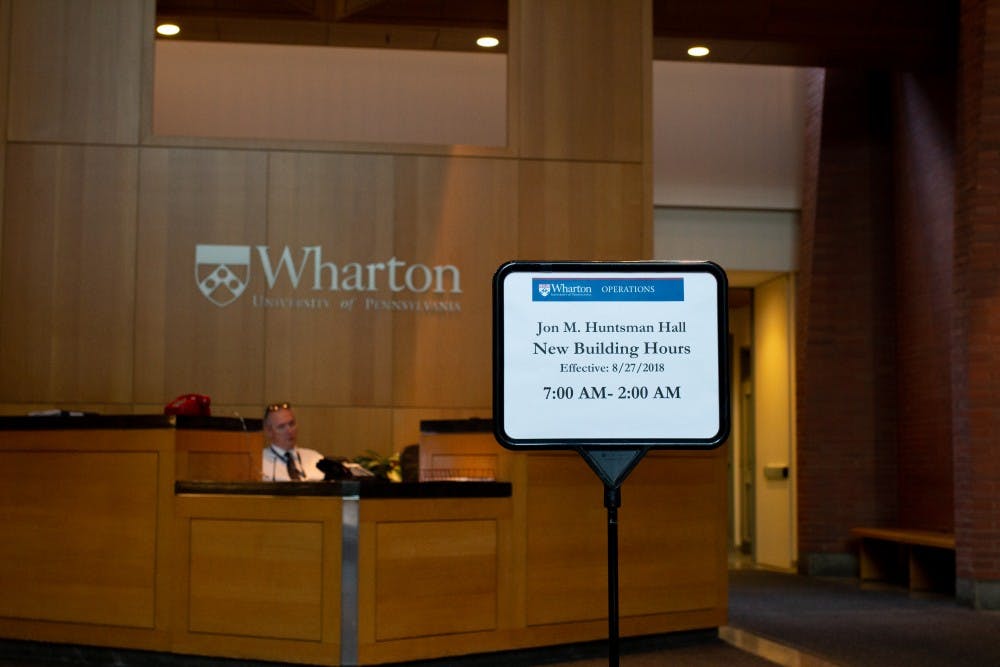
Three years ago, if I had heard the news that Huntsman was closing at 2 a.m., I would have been frustrated. Perhaps I might have even been furious that the University was not focusing on the important aspects of mental health. A spot for late-night studying and Wawa for late night snacks were essentials of my first two years of college and essential for my success in classes.
At least, so I thought.
According to a report of 18,500 college undergraduates in 2016, Penn ranked No. 2 out of 137 universities for having the latest bedtime. Columbia University’s average bedtime of 1:26 a.m. was the only one to surpass Penn’s average bedtime of 1:22 a.m.
Although we are still learning about the intricacies of sleep, it is well known that sleep is essential for our well-being. Thus, sleeping late regularly does one of two things: It either reduces the amount and quality of sleep we get or it throws off our body’s natural circadian rhythm — our natural sleep cycle. Both of these have been associated with impaired cognition and memory, decreased well-being, lower academic performance, increased appetite, and increased risks of hypertension and cardiovascular problems. Sleeping late is not healthy.
The announcement of Huntsman closing at 2 a.m. is indeed a testament to the University recognizing the issue of sleep deprivation, which is an issue not unique to Penn. It is a concrete action that states: Do not sleep late.
Yet, critics of the policy might state that the policy does not address the “core” of the issue, which many might claim to be academic rigor and coursework of Penn. Furthermore, they state that the policy does not prevent students from staying up late. Students will just find another location, they say.
Yes, the academic rigor of Penn is quite challenging and very demanding at times. Sometimes, I too wish that it were easier. Sometimes I too wish that I didn’t have so many readings or that I didn’t have problem sets or that my exams were a tad easier.
But this was something most, if not all of us, knew when we applied and came to Penn. We knew we were going to be challenged like we had never been before. We knew it was going to be hard. So then does it make sense to resort to removing exams or reducing problem sets as a solution to campus stress? Doing this would undermine the very rigor of Penn that has made it what it is. Most students who I have spoken to that state they don’t have time to complete all their assignments are either involved in too many clubs, taking on too many classes, or have a difficult balance of courses.

A sign at the entrance to Huntsman Hall depicting the building's new hours.
I will admit there are aspects of academics that can be improved without undermining the academic integrity of Penn. However, when we have such discussions it’s important to be very specific and not vaguely claim Penn is competitive or difficult. For instance, the University should certainly evaluate its current midterm policy, which allows students to take three midterms in one day. It is very hard to imagine how even the brightest of students can produce their best work in three exams in one day. With many of these midterms worth 33 percent of students’ grades, it is not hard to imagine the stress this can cause. The fairness of curves in certain departments is another huge topic and its impact on collaboration should be discussed.
The notion that the policy cannot force students to sleep earlier points to another important facet of change on campus: It is a two-way street. Making Penn a healthier campus requires not only the administration increasing resources on campus, but also the students leading healthier lives. The increase in resources must be coupled with attempts by students to lead healthier lives by sleeping earlier.
Many students will push work for the night so they can fulfill club commitments and social responsibilities during the day. However, many times we forget that our full-time and main responsibility is just being a student, not serving as an officer of a club organization. We often act like we are CEOs of a company, only to realize after we graduate that they really didn’t matter besides the friends we made.
In the beginning of my Penn career, I was adamant that working late was essential for my success and I worked best at night. Except, my grades didn’t back that claim up. I went to Weingarten and asked upperclassmen how they worked to figure out what I was doing wrong. I realized that the majority of my friends who did well academically had set bedtimes, set studying times, didn’t work too much into the night, had some time for themselves, and were involved in one or two clubs. They did not have easier course loads. This was my “ah-ha” moment.
I changed many of my habits, but notably, I started sleeping earlier and I learned to say, "No." And it did make a difference in my classes. It is important to realize that the health culture on campus can’t just be “fixed” by merely increasing resources and throwing money at it. It would be quite simple if money could solve all our problems. We are all required to try our best to take care of our bodies and seek help when necessary.

JAY SHAH is a College senior from New Hyde Park, N.Y. in the Biological Basis of Behavior Program. He is the former Vice President of the Undergraduate Assembly. His email is shahjay@sas.upenn.edu.
The Daily Pennsylvanian is an independent, student-run newspaper. Please consider making a donation to support the coverage that shapes the University. Your generosity ensures a future of strong journalism at Penn.
Donate







